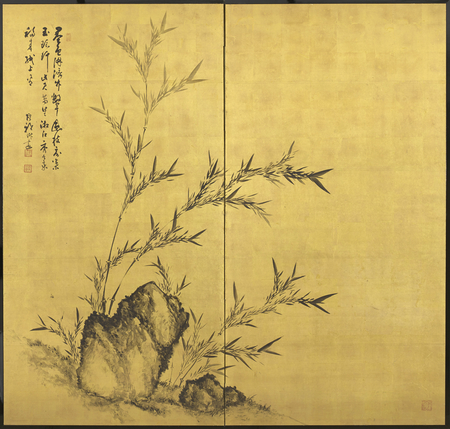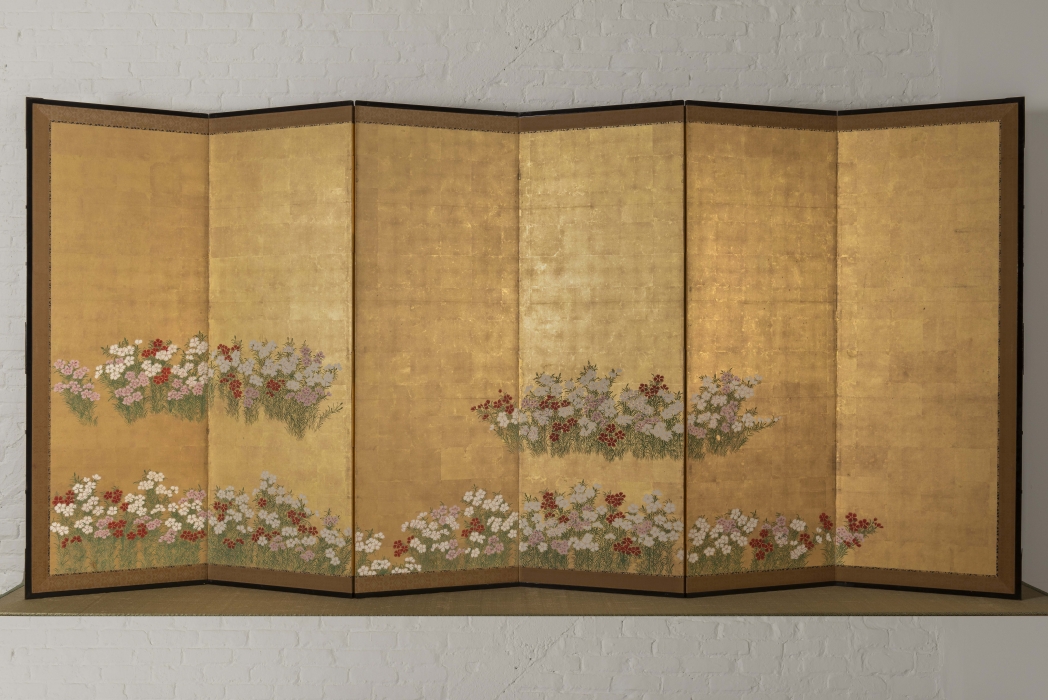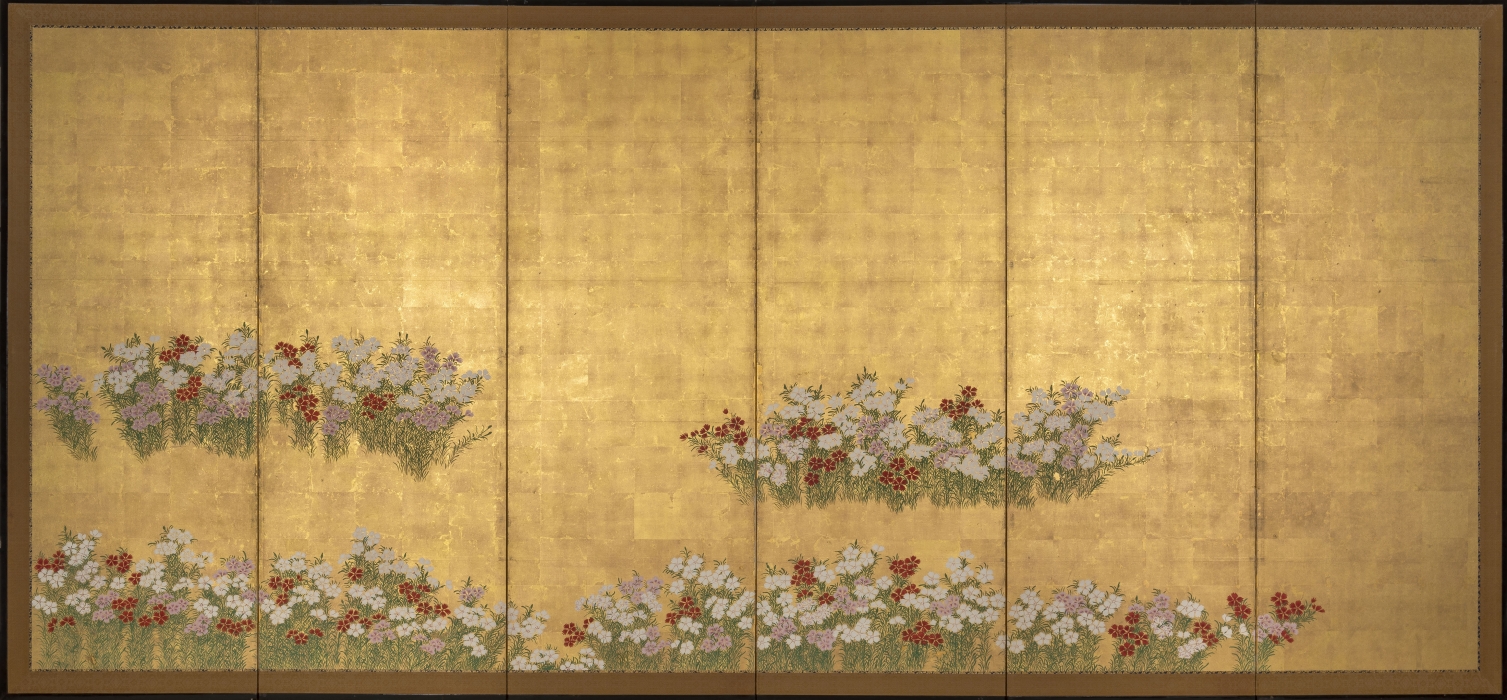Product Description
7129 A two-fold paper screen painted in ink on a gold ground with bamboo and rocks
Signed: Ryūga heiga (Painted and inscribed by Ryūga)
Inscribed with a Chinese poem:
Several bamboo sprays are painted with life like vividness in ink
Wind against the branches and dewdrops on the leaves making sounds of beautiful jade beads chiming
*I see a fine feature on the surface of bamboo leaves
I can now clearly picture myself looking at what I have painted on this paper.
Seals:
Right upper: Shoga-zen (Calligraphy, Painting, and Zen)
Left, upper: indecipherable
Left, lower: Ryuga
Bottom right: indecipherable
Japan 19th/20th century Meiji/Taishō period
Dimensions: H. 168cm x W. 176cm (66¼” x 69½”)
Takahashi Ryuga (1863-1930)
Ryuga was born in Niigata prefecture and studied painting under Tanomura Chokunyu (1814-1907) before going on to study at Kyoto fu Gagakko (Kyoto Prefecture School of Painting). He excelled at tea ceremony, flower arrangement, seal carving, Chinese classical poetry and Japanese waka poetry.
He exhibited at the Naikoku Kangyo Hakurankai (National Industrial Expositions), the Nihon Kaiga Kyokai (Japan Painting Association), and at the Rengo Kaiga Kyoshinkai (Federation of Promoting Japanese Paintings).
* It would appear that the reference to water on the bamboo leaves refers to the tears of Lady Meng Jiang, the heroine of a Chinese Song dynasty legend.
Lady Meng Jiang’s husband was pressed into service by imperial officials and sent as a slave to build the Great Wall of China. Having not received any news from her husband after his departure, she set out to bring him winter clothes. Unfortunately, by the time she reached the Great Wall, her husband had already died. Upon hearing this devastating news, it is said she wept so bitterly that part of the Great Wall collapsed, revealing his bones. A temple devoted to Lady Meng Jiang was erected at the spot and has been there since at least 1594. The temple still exists and sits at the eastern beginning of the Great Wall in Qinhuangdao of Hebei Province.









